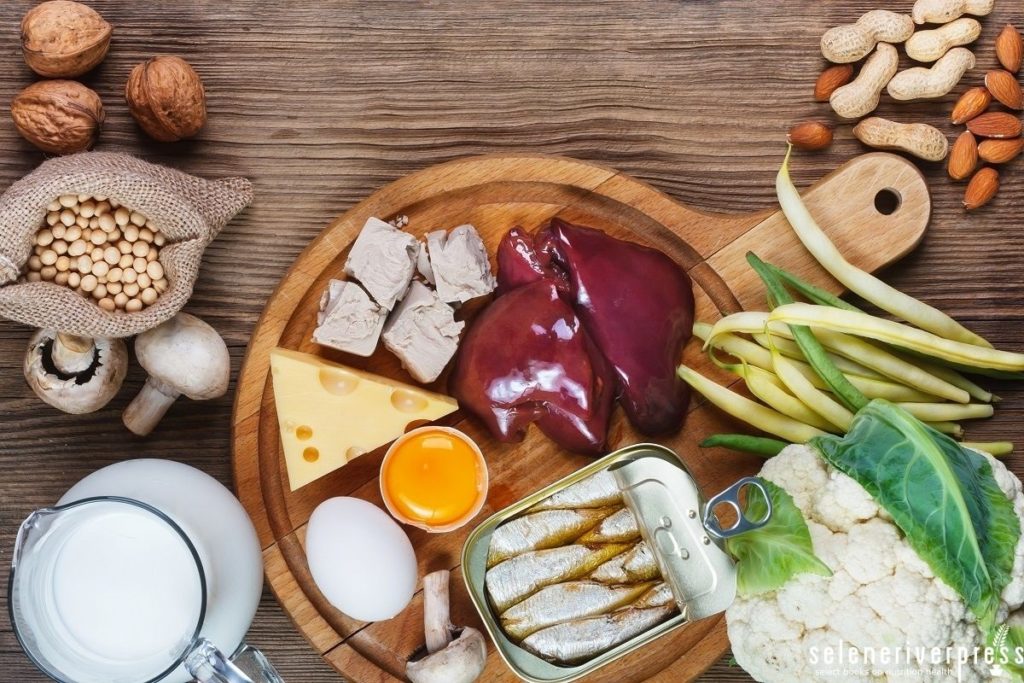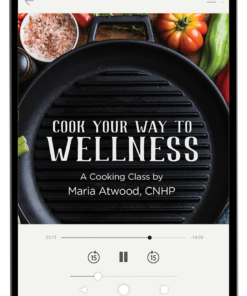It is my belief that we need our precious eyesight more than any other part of the human body. I say this because I’ve dealt with eye issues for the past year. I hope you will take this opportunity to understand the basics of preventing, healing, and preserving this wonderful gift. As such, I will discuss some of what I’ve learned about the eye and optic nerve as well as the multifaceted issues that can deprive us of good eyesight or plague us with eye disorders. Learn the basics as put forth in this article, and you should be able to maintain your eyesight for a lifetime or even restore it somewhat if your vision is already impaired.
Why Vision Is the Most Important Sense Organ
The article “Why Vision Is the Most Important Sense Organ” from the website Smart Vision Labs is just one of many I came across that had a similar title, and I believe it boldly states the truth about our eyes. Here is a quote from that article (emphasis mine):
“The way sight works is why it is one of the five senses. The eyes are the physical portal through which data from your environment is collected and sent to your brain for processing. The brain plays its part by converting the light that went into your eyes into usable information—how far away, how bright, what color.
“So if you were to look at your dog, you would see that, yes, it is a dog but also what breed he is and that he is your pet and would probably like his ears scratched.
“Humans are built to collect information with their eyes, and even reduced vision quality creates a negative effect. A regular vision test is a small investment for something that has such a huge impact on our lives.
“Our eyes aren’t just performing a task, they are the portal through which our brain can tell us about our world, learn new things, and make wonderful memories. All of which are reasons why vision is such an important thing to take care of.”
Are You Getting Regular Vision Tests?
Getting your vision tested at least once a year is imperative for ensuring you are not developing a chronic eye disorder. Following is a list of the various types of doctors who do eye exams. I suggest that you don’t choose by the price tag but rather by your symptoms. This will ensure that you get the necessary tests that can detect serious eye or optic nerve issues. I myself did not discover I had glaucoma until I happened to visit an ophthalmologist.
Ophthalmologist: “A physician who specializes in diagnosing and prescribing treatment for defects, injuries, and diseases of the eye and is skilled at delicate eye surgery, such as that required to remove cataracts; called also oculist.”
Optometrist: “A specialist in optometry; an independent primary health care provider who examines the eyes to evaluate health and visual abilities, diagnoses eye diseases and conditions of the eye and visual system, and provides necessary treatment such as eyeglasses, contact lenses, vision therapy, and low vision aids; optometrists may also perform certain surgical procedures. In most states, they may use drugs to treat eye disease. Optometrists are not medical doctors and are educated and licensed in accordance with state laws.”
Optician: “A health care professional who is trained and licensed to make corrective lenses, adjust and repair spectacles, and fit contact lenses.”
The Most Common Eye Disorders
You can learn more about the following eye disorders at the CDC Vision Health Initiative:
- Refractive errors
- Macular degeneration
- Cataracts
- Diabetic retinopathy
- Glaucoma
- Amblyopia
- Strabismus
Additional Reasons to See Your Eye Specialist
The CDC also explains what you should look for when it comes to keeping an eye on your vision health. If you are experiencing any of the following eye symptoms, they urge you to visit your eye doctor as soon as possible:
- Decreased vision
- Draining or redness of the eye
- Eye pain
- Double vision
- Floaters (tiny specks that appear to float before your eyes)
- Circles (halos) around lights
- Flashes of light
Prevention, Healing, and Preserving Your Vision
Dare I say that ultimately it is nutrition—including lifestyle, diet, and supplementation—that allows us to maintain healthy vision for life. And in the event we have not met the criteria for maintaining exceptionally healthy vision, it is only with nutrition that we can hope to heal. Let’s talk about things you can start to do right now.
Bad Habits that Ruin Your Eyesight
See below for the top ten bad habits to avoid in order to prevent ruining your eyesight, compiled by the website Right Home Remedies.
Unhealthy eye habits include smoking, rubbing your eyes, looking at the computer screen or cell phone for long periods of time without allowing your eyes to rest, alcoholic drinks, eating junk and high sugar foods, not visiting your eye doctor annually, exposing your eyes to UV rays without proper sunglasses, overusing eye drops, and watching TV before you go to bed or while you’re in bed.
Essential Eye Foods
You can find a list of essential foods for eye health at WebMD. Also, I’ve added one food below that is of great importance for superior eye health. You will also find a few of my favorite recipes for eye health.
- Spinach and kale: loaded with lutein and zeaxanthin.
- Grapefruit, strawberries, and brussels sprouts: good sources of vitamin C.
- Seeds, nuts, and wheat germ: source of vitamins C and E to maintain healthy tissue.
- Turkey, oysters, and crab: powerful sources of zinc, which is essential to eye health.
- Salmon, sardines, and herring: source of omega-3 fatty acids for heart and brain health.
- Carrots, pumpkin, and sweet potato: orange and yellow vegetables and fruits contain beta carotene, which the body converts into vitamin A.
According to Sally Fallon Morrel, the following nutrients are essential to eye health: “Vitamin A foods, of course, and also foods rich in zinc, an important cofactor for vitamin A.” Here are some other resources to learn more on zinc:
- “Benefits of Zinc and Its Role as a Glutathione Cofactor.” This article will deepen your understanding of this unique trace mineral.
- “The 7 Wonders of Zinc.” This blog post explains all the reasons why zinc is my favorite trace mineral.
Another Power-Packed Food for Eye Health
In this quote from my blog post about organ meats, I discuss why liver is packed with nutrients important to our eye health:
“Compared with muscle meats, organ meats are richer in just about every nutrient, including minerals like phosphorus, iron, copper, magnesium, and iodine, and in B vitamins, including B1, B2, B6, folic acid, and especially B12. Organ meats provide high levels of the all-important fat-soluble vitamins A, D, E, and K, especially if the animals lived outside in the sunlight and ate green grass. Organ meats are also rich in beneficial fatty acids such as arachidonic acid, EPA and DHA. Organ meats even contain vitamin C. In fact, liver is richer in vitamin C than apples or carrots! Adding only small amounts of organ meats to your ground meat dishes will provide your family with super nutrition…in a way that everyone likes and that are easy to consume.”
Super Supplements for Healthy Eyes
There are numerous healthy eye supplements from Standard Process to consider, depending on your eye condition (dryness, floaters, or eyestrain, to name a few). There are also specific protocols for serious eye disorders such as glaucoma and macular degeneration. Be sure to see a Standard Process practitioner who can help you design a protocol specific to your needs.
Recipes for Super Healthy Eyes and Overall Health
Superfood Meat Muffins
—From Health, Home and Happiness. I found there is enough fat in the meat that I didn’t have to grease my muffin pans. This recipe makes one dozen superfood meat muffins.
Ingredients
1 lb. organic grass-fed liver, soaked overnight in lemon or orange juice
1 lb. ground beef
6 cloves garlic
¼ cup ketchup (see recipe for homemade ketchup in Nourishing Traditions)
2 tablespoons basil, parsley, or other favorite fresh herb
½ teaspoon ground sea salt
½ teaspoon freshly ground pepper
Instructions
- Pulse liver in your food processor. If you don’t have one, dice by hand and place in a bowl. Add remaining ingredients.
- Pulse again in processor or thoroughly mix by hand until the mixture is the consistency of hamburger. Portion the meat in the muffin pan. Top with ketchup if desired.
- Bake at 375°F for 30 minutes or until thoroughly cooked. Cool a bit before serving.
Liver Pate
—A Traditional Cook original. This recipe is approximate and I adjusted the ingredients after the first try :>) For a source of great liver approved by the Weston A. Price Foundation, order directly from White Oak Pastures.
Ingredients
1 lb. beef liver or a bit more, sliced (do not rinse)
¼ cup organic coconut oil, plus more for frying
¾ cup organic butter (raw if available)
1 medium yellow onion, chopped into chunks
2 cloves garlic, chopped
1 teaspoon sea salt
Instructions
- Lay liver slices on paper towels and press lightly with more paper towels to absorb the extra blood. Cut into smaller pieces, approximately 2-inches long.
- Place in skillet with about 2 tablespoons coconut oil and fry to medium.
- Add fried liver in food processor. Add butter and remaining ¼ cup of coconut oil. Add onion and garlic to food processor. Next, add the salt (important for preservation).
- Blend on high until it is thoroughly processed.
- Lightly grease a glass Pyrex baking dish (such as a loaf pan). Pour blended pate into the pan and even out. Cover with plastic wrap and place in the refrigerator for a few hours to harden.
- When ready, cut into strips about 1½- to 2-inches thick. Serve cold or heated slightly in a tabletop oven (do not microwave). This is delicious on crackers or with a medley of baked veggies.
I would love to hear your comments and stories! Be sure to post them in the comment section of this blog post.
[xyz-ihs snippet=”Begin-Authors-Note”]Afterthoughts from the Traditional Cook
Ketones are a vital ingredient to add to a good Standard Process eye supplement protocol and any necessary medical treatments necessary. Ketones, derived from organic coconut oil, feed the brain and are one of the few things that cross the brain barrier. Dr. Bruce Fife has written extensively on this subject. He recommends at least 3–4 tablespoons of organic coconut oil on a daily basis. Dr. Fife’s book Ketone Therapy is an easy read that will provide a huge boost that may extend brain health. Stop Vision Loss Now! by Dr. Fife is another great book to check out.
Additionally, if you’re interested in learning some specifics on glaucoma and how organic coconut oil may help, visit Dr. Fife’s Healthy Ways Newsletter put out by his Coconut Research Center.
[xyz-ihs snippet=”End-Authors-Note”]Disclaimer from Maria Atwood, CNHP: I am a Certified Natural Health Professional, CNHP, not a medical doctor. I do not diagnose, prescribe for, treat, or claim to prevent, mitigate, or cure any human diseases. Please see your medical doctor or health practitioner prior to following any recommendations I make in my blog posts or on my website.
Images from iStock/piotr_malczyk (main), ttsz (glaucoma), AaronAmat (woman with blueberries).






